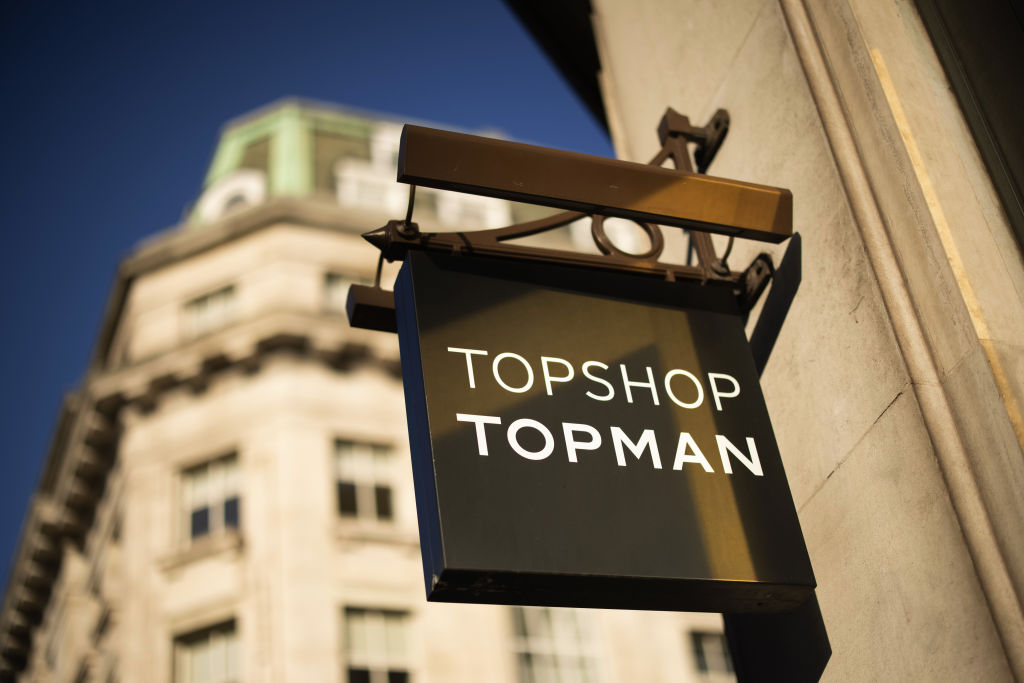Asos shares jump 20% after agreeing to sell Topshop and Topman brands
Asos is launching a joint venture with Denmark’s Heartland group to purchase the Topshop and Topman brands - is it time to buy?


Get the latest financial news, insights and expert analysis from our award-winning MoneyWeek team, to help you understand what really matters when it comes to your finances.
You are now subscribed
Your newsletter sign-up was successful
Want to add more newsletters?

Twice daily
MoneyWeek
Get the latest financial news, insights and expert analysis from our award-winning MoneyWeek team, to help you understand what really matters when it comes to your finances.

Four times a week
Look After My Bills
Sign up to our free money-saving newsletter, filled with the latest news and expert advice to help you find the best tips and deals for managing your bills. Start saving today!
Asos’s share price jumped by as much as 20% on Thursday (5 September) after it agreed to sell its Topshop and Topman brands to a new joint venture.
The online clothing retailer, which bought Topshop in 2021 from the administrators of Philip Green's collapsed Arcadia group, along with Topman, is launching a joint venture with Denmark’s Heartland group, which will purchase the brands.
Heartland will own 75% of the new company but Asos will retain certain rights for the brands in exchange for a royalty fee that enables Asos to keep selling the brands online.
MoneyWeek
Subscribe to MoneyWeek today and get your first six magazine issues absolutely FREE

Sign up to Money Morning
Don't miss the latest investment and personal finances news, market analysis, plus money-saving tips with our free twice-daily newsletter
Don't miss the latest investment and personal finances news, market analysis, plus money-saving tips with our free twice-daily newsletter
José Antonio Ramos Calamonte, chief executive officer of Asos, said: “We’re pleased to be making this announcement today, which is an important step in our continued transformation.
“Topshop and Topman have made good progress since we acquired the brands. The new joint venture with Heartland is testament to the brands’ potential and the partnership will help bring Topshop and Topman to more customers globally.”
Finance chief Dave Murray added to analysts and investors on a conference call: "We've been making decisions to drive profitability rather than just purely going after the sales number."
Asos battles against clothing rival Shein
Asos has been battling with losses and has faced sales pressure in Europe from the likes of fast-fashion firm Shein, which was preparing for a stock market listing.
Jelena Sokolova, senior equity analyst at Morningstar, says: “The sale can be seen as a strategic step to enhance balance sheet quality. With net debt at £348.8m as of March 2024, this move should improve Asos's financial standing, providing £118m in cash and reducing borrowings by £13m.
“This positions Asos to better weather the challenges posed by a post-Covid downturn in the online apparel industry and intensifying competition from Shein and Temu.”
Heartland is owned by Danish billionaire Anders Holch Povlsen, who has a significant stake in Asos. He is also Scotland’s richest man.
Separately, Associated British Food sales fell on Thursday after the group told shareholders that dreary early summer weather had hit sales at retailer Primark.
Primark’s UK like-for-like sales dropped 0.6% during the retailer’s third quarter and are set to slip by around 3.1 per cent in the three months to 14 September, AB Foods said. Primark also lost UK market share in the six months to 21 July, as high street trade suffered.
George Weston, chief executive of AB Foods, said: 'While the British weather was not in Primark’s favour this summer, robust growth in other markets and new store openings have driven good sales overall.”
Get the latest financial news, insights and expert analysis from our award-winning MoneyWeek team, to help you understand what really matters when it comes to your finances.
Chris is a freelance journalist, and was previously an editor and correspondent at the Financial Times as well as the business and money editor at The i Newspaper. He is also the author of the Virgin Money Maker, the personal finance guide published by Virgin Books, and has written for the BBC, The Wall Street Journal, The Independent, South China Morning Post, TimeOut, Barron's and The Guardian. He is a graduate in Economics.
-
 How should a good Catholic invest? Like the Vatican’s new stock index, it seems
How should a good Catholic invest? Like the Vatican’s new stock index, it seemsThe Vatican Bank has launched its first-ever stock index, championing companies that align with “Catholic principles”. But how well would it perform?
-
 The most single-friendly areas to buy a property
The most single-friendly areas to buy a propertyThere can be a single premium when it comes to getting on the property ladder but Zoopla has identified parts of the UK that remain affordable if you aren’t coupled-up
